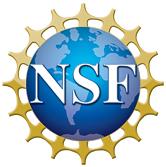 The National Science Foundation (NSF) last week issued a new solicitation for its Secure and Trustworthy Computing (SaTC) program:
The National Science Foundation (NSF) last week issued a new solicitation for its Secure and Trustworthy Computing (SaTC) program:
Cyberspace — a global “virtual” village enabled by hyper-connected digital infrastructures – has transformed the daily lives of people for the better. Families and friends regardless of distance and location can see and talk with one another as if in the same room. Cyber economies create new opportunities. Every sector of the society, every discipline, has been transformed by cyberspace. Today it is no surprise that cyberspace is critical to our national priorities in commerce, education, energy, financial services, healthcare, manufacturing, and defense.
The rush to adopt cyberspace, however, has exposed its fragility. The risks of hyper-connectedness have become painfully obvious to all. The privacy of personally identifiable information is often violated on a massive scale by persons unknown. Our competitive advantage is eroded by the exfiltration of significant intellectual property. Law enforcement is hobbled by the difficulty of attribution, national boundaries, and uncertain legal and ethical frameworks. All these concerns now affect the public’s trust of cyberspace and the ability of institutions to fulfill their mission [more following the link].
The National Science and Technology Council (NSTC) with the cooperation of NSF has put forth a 2011 report Trustworthy Cyberspace: Strategic Plan for the Federal Cybersecurity Research and Development Program. The plan identifies a broad, coordinated research agenda to make cyberspace secure and trustworthy. Research in cybersecurity must “change the game,” check the misuses of cyber technology, bolster education and training in cybersecurity, establish a science of cybersecurity, and transition promising cybersecurity research into practice. The goal is to make cyberspace worthy of the public’s trust.
This solicitation is supportive of the NSTC strategic plan for a trustworthy cyberspace. It recognizes that cyberspace will continue to grow and evolve, and that advances in the sciences and technologies will create new “leap-ahead” opportunities expanding cyberspace. It recognizes that cybersecurity must also grow and co-evolve, and that a secure and trustworthy cyberspace will ensure continued economic growth and future technological innovation.
The new SaTC solicitation is seeking proposals from multiple perspectives and of varying length and size:
This program welcomes proposals that address Cybersecurity from a Trustworthy Computing Systems perspective (TWC); a Social, Behavioral and Economic Sciences perspective (SBE); and a Transition to Practice perspective (TPP)… In addition, we welcome proposals that integrate research addressing two or more of these perspectives as well as proposals focusing entirely on Cybersecurity Education… Proposals may be submitted in one of the following three categories:
- Small projects: up to $500,000 in total budget, with durations of up to three years
- Medium projects: $500,001 to $1,200,000 in total budget, with durations of up to four years
- Frontier projects: $1,200,001 to $10,000,000 in total budget, with durations of up to five years
Projects with Trustworthy Computing Systems and/or Social, Behavioral and Economic Sciences perspectives may include a Transitions option, described in a supplemental document of no more than five pages. This document should describe how successful research results are to be further developed, matured, and experimentally deployed in organizations or industries, including in networks and end systems used by members of the NSF science and engineering communities. Proposals with a Transitions option may exceed the above-stated maximums up to $167,000 for Small projects, $400,000 for Medium projects and $750,000 for Frontier projects.
In addition, the SaTC program seeks proposals addressing Cybersecurity Education with total budgets limited to $300,000 and durations of up to two years.
Read complete details — including proposal deadlines — here.
(Contributed by Erwin Gianchandani, CCC Director)









